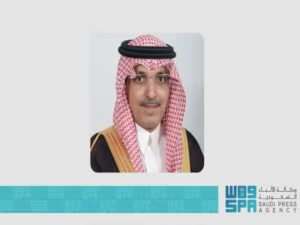The Ministry of Education has announced a sweeping new directive that will require all private schools across the UAE to introduce Arabic language, Islamic education, and social studies into their kindergarten curricula, regardless of the educational system they follow. The initiative will take effect from the 2025–2026 academic year and is aimed at strengthening national identity, foundational learning, and inclusivity from the earliest stages of education.
Early Learning Focus: Language, Values, and Social Awareness
According to the Ministry, the decision is designed to reinforce early developmental skills in language acquisition, religious and moral values, and basic social awareness. Officials say that structured instruction in these areas will help young learners build a strong sense of national identity and belonging during their formative years.
Equal Access Across All Curricula
This mandate applies universally to all private schools operating within the UAE, regardless of whether they follow British, American, IB, Indian, or other curricula. The Ministry emphasized that ensuring every child—regardless of background—has access to the UAE’s official language and cultural foundations is central to the policy.
Implementation Timeline and Schedule
For most schools, the program will commence in the 2025–2026 academic year. However, for schools that start their academic year in April (such as those following certain South Asian curricula), the mandate will begin in the 2026–2027 academic year.
Arabic Instruction to Expand Gradually
Arabic will be taught to all kindergarten students daily for 200 minutes per week (approximately 40 minutes per day). This will increase to 300 minutes per week—roughly 60 minutes a day—by the 2027–2028 academic year. Instruction will be delivered by certified early childhood Arabic teachers using approved learning resources tailored to both native and non-native speakers.
Islamic Education and Social Concepts Integration
Islamic education will be taught for 90 minutes weekly to all Muslim students, spread over either three 30-minute sessions or two 45-minute sessions. Social studies concepts—such as family roles, UAE geography, local environments, and core values—will be embedded into daily activities using play-based and age-appropriate methods.
Support Frameworks and Quality Assurance
To ensure smooth implementation, the Ministry will provide private schools with comprehensive frameworks, learning standards, and curriculum resources for all three subjects. Approved teaching methods and assessment tools tailored to early childhood will also be provided. The program is inclusive of students of determination, with adaptations based on individual learning needs.
Oversight and Compliance
Advisory visits to schools will begin with the rollout in 2025–2026 to guide implementation. By 2026–2027, official inspection visits, in partnership with local education authorities, will be conducted to ensure schools comply with the new guidelines.
Promoting Emirati Identity from the Start
The Ministry stated that the new directive is part of its broader vision to embed Emirati values, cultural understanding, and Arabic proficiency from the earliest years of formal education. By doing so, the government aims to cultivate a generation deeply rooted in national identity, while also promoting unity across the country’s diverse school populations.





